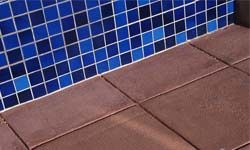Mildew is a fact of life, however you don't have to suffer its unsightly stains any longer. Mildew stains can pop up just about anywhere, so use these stain removal techniques to stop mold in its tracks.
After you identify the stained material, you can follow these tips to erase mildew stains:
Advertisement
- Non-washable fabrics such as Acetate, Carpet (synthetic and wool), Fiberglass, Rayon, Silk, Triacetate, Wool
- Washable fabrics such as Acrylic Fabric, Cotton, Linen, Modacrylic, Nylon, Olefin, Polyester, Spandex
- Household surfaces such as Bamboo, Cane, Cork, Linoleum, Vinyl Clothing, Vinyl Tile, Vinyl Wallcovering
- Ceramic Tile and Grout
- Leather and Suede
- Wood
Advertisement
